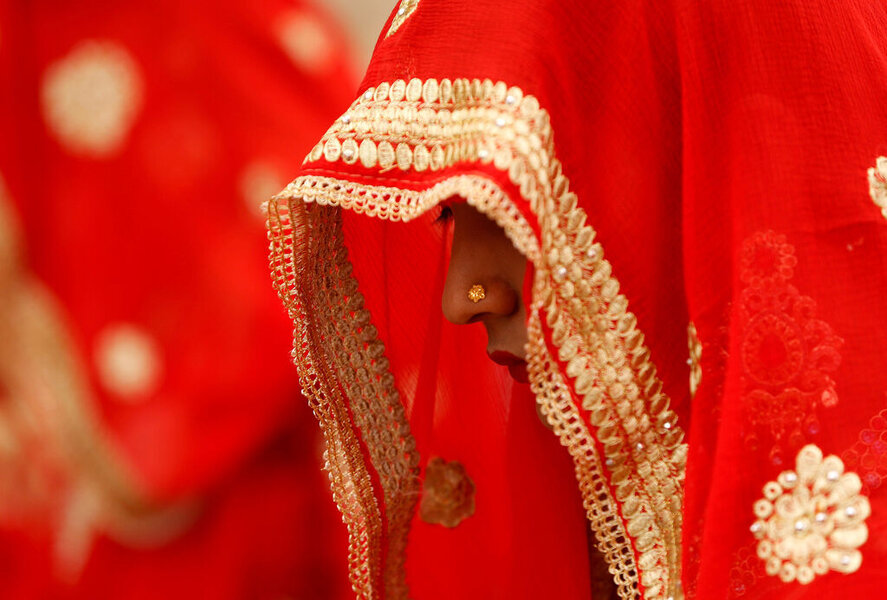A “love project” to counter religious stereotypes in India
Loading...
Most governments try by varying degrees to instill fairness into their systems of justice, land ownership, education, and health care. But progress toward equity is uneven and – in some places, in reverse. In India, for example, the ruling Hindu nationalist party, the Bharatiya Janata Party, continues to limit the rights of Muslims. The latest example is a string of new restrictions on interfaith marriage in states it controls through laws banning religious conversion.
Since November, three BJP-controlled states have enacted laws making such conversions a criminal offense. At least two more have drafted similar legislation. The real intent of such laws is to ban what is called “love jihad.” The term falsely depicts Muslim men as predators out to convert vulnerable Hindu women through marriage.
Activists have cried foul. India has a secular constitution. The 1954 Special Marriage Act protects unions of couples from different religious communities. Although the Supreme Court has twice refused to hear petitions this year challenging the constitutionality of the new religious conversion laws, some opponents are pushing back with a different weapon: love stories.
Last October, as the country’s most populous state was preparing a law that would impose prison terms of up to 10 years for anyone found guilty of using marriage to force someone to change their religion, three former Indian journalists launched a campaign called the India Love Project. It invites couples married across the lines of religion, caste, and ethnicity to tell their stories through social media.
“There is a narrative that there are other, more insidious motives for marriage – that love is being weaponized,” Samar Halarnkar, one of the campaign founders, told the BBC.
In practice these restrictions address a phantom issue among a population of 1.35 billion. According to a 2013 study by the government-run International Institute for Population Sciences, based on the most recent comprehensive survey of Indian households, only 2.2% of all married women between the ages of 15 and 49 had married outside their religion. A Statista poll last May found that 75% of Muslim women in India “strongly disagree” with interfaith marriage. But the conversion laws fit into India’s long history of Hindu-Muslim strife and their adverse effects were almost immediately tangible. Since the first law’s adoption in the state of Uttar Pradesh, dozens of Muslim men have been accused of “enticing a woman and forcing her to convert to Islam.” In the city of Lucknow a wedding was halted. Hindu women face harassment and violence if they are found with Muslim men. Interfaith couples trying to register their marriage face daunting bureaucratic hurdles.
Nivedita Jha, an author and journalist who posted her own story of interfaith marriage, told Al Jazeera that “love jihad” laws violate “the soul” of the constitution. “Jihad is [only] done when we go to war,” she said. “In love, there is no war.”
The India Love Project is modest as protest movements go, but sometimes the call for justice has to rise up from the grassroots, reminding governments of their true role. Marriage is common to all human cultures. It embodies shared ideals of steadfast commitment, selflessness, a safe environment for children, a home for each heart. Where it flourishes unrestricted by discrimination or exclusion, it can be a source of stability for societies as well as individuals.





